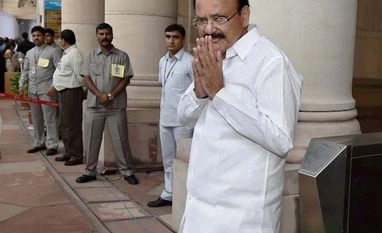14 Members of Parliament (MPs) were not present during the voting process.
Two from BJP, two from Congress, two from Indian Union Muslim League (IUML), four from TMC, one from NCP, one from Pattali Makkal Katchi (PMK) and two Independent.
The list of names is as follows:
• Vijay Goel and Sanwar Lal Jat (Bharatiya Janata Party)
• Anu Agha and Naba Kumar Sarania (Independent)
• Abdul Wahab and P. K. Kunhallikutty (Indian Union Muslim League)
More From This Section
• Kunal Kumar Ghosh, Tapas Paul, Pratima Mondal and Abhishek Banerjee (Trinamool Congress)
• Mausam Noor and Ranee Narah (Indian National Congress)
• Udayanraje Bhonsale (Nationalist Congress Party)
• Anbumani Ramadoss (Pattali Makkal Katchi)
Of the 771 votes polled, 760 were valid and 11 were declared invalid; 14 lawmakers were absent from voting. Ninety per cent votes were polled within the first two hours, till 12 pm.
National Democratic Alliance (NDA) nominee and former union minister M Venkaiah Naidu beat Opposition nominee Gopalkrishna Gandhi in becoming the 13th vice-president of India.
The Vice-President is selected through a secret ballot by the members of the Electoral College consisting of the members of both Houses of Parliament in accordance with the system of proportional representation by means of the single transferable vote.
The nominated Members of Rajya Sabha as well as of Lok Sabha are also eligible to be included in the Electoral College and, therefore, are entitled to participate in the election.
Members of Parliament had to use special pens for marking their choice.
Votes marked with any other pen are liable to be rejected.
The ballot paper contained the names of the contesting candidates but did not contain any election symbol.
Unlike the President, the Vice-President is not allotted any special residential privileges while in office.
)